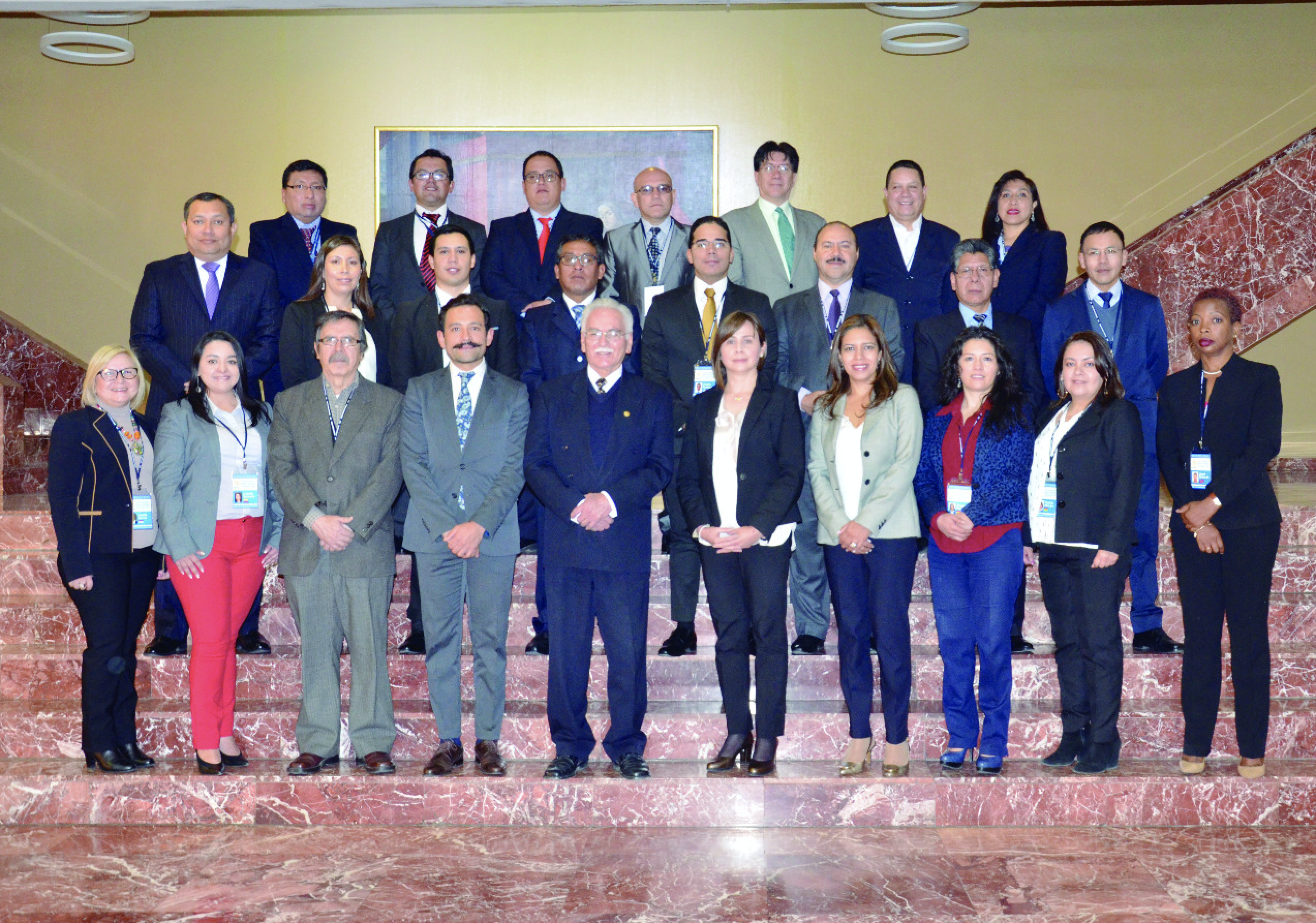
September 4, 2018
Workshop on Risk Management and Oversight of Payment Systems
CEMLA and the Central Bank of Bolivia organized the Workshop on Risk Management and Oversight of Payment Systems in La Paz, on August 27 – 29, 2018.
The Workshop was attended by senior professionals from 16 institutions, comprising Latin American and Caribbean central banks and national and international financial authorities, that gathered to exchange their experience in the development and exercise of monitoring and policy-making payments and market infrastructures, that is to oversee financial market infrastructures.
The agenda of the Workshop comprised institutional, operational and policy issues of the payments oversight function in central banks.
On the institutional side of the oversight function, the discussions were focused in better understanding governance and regulatory issues that are relevant to implement and effectively develop oversight activities within central banks. One key aspect that was underlined is that given central banks’ mandate to promote the well-functioning of payments and market infrastructures, it is of extreme importance to build capacities and display appropriate resources to oversee activities and developments in such financial infrastructures. Regulatory powers were found as a key pillar to allow oversight teams to induce the proper functioning and continuing improvement of participants and platforms of the payments ecosystem. And while organizational and regulatory arrangements are indispensable for the oversight function, a forward-looking strategy, including objectives, policy development and operative autonomy will be also essential for the oversight function to become a key instrument for the well-functioning of payment systems, as well as for financial and monetary stability.
Operational aspects for payments oversight that were addressed in the Workshop relate to establishing a risk management framework and quantitative tools to monitor financial, business and other inherent risks in payments and market infrastructures. It was concluded that in light of continuous financial modernization, oversight staff should be provided with analytical and technical resources enabling timely, appropriate and comprehensive monitoring; in particular, it was pointed out that in the region there is a need to move forward in the establishment of reporting data frameworks of the transactions that occur through the different payment systems and platforms. As a result of this, it was noted that oversight teams should be also able to establish, update and lead interaction and collaborative schemes with the industry, including a sound reporting framework (data and statistics) and permanent dialogue (committees, national councils, task forces, among other communication mechanisms). These elements will be concretely useful to input policy development and all-encompassing monitoring of the payments ecosystem, including innovative schemes and business models.
The Workshop devoted time to be updated on two current policy issues that have significant implications for overseers of Latin American and Caribbean central banks, say, cybersecurity and digital innovations. Implications that resulted more evident for the oversight function entails: 1) a strengthening of existing knowledge of products’ and schema’ designs given the increasing presence of new technologies, in order to better identify what and how overseer roles should be adapted to ensure the proper functioning of payment systems and related infrastructures, and 2) the need to adjust risk management and regulatory frameworks to address challenges stemming from cyber risk and from financial technologies that have resulted in important changes for traditional payments market functioning.
The Workshop key conclusions can be summarized in the following:
- Looking forward, central banks of the region in overseeing payments and market infrastructures should modernize their payments policy and oversight strategy to preserve the balance of key considerations of safety, efficiency and proper functioning of said financial infrastructures, embracing new responsibilities derived from the emergence of new technologies and their immediate implications.
- Central banks should equip their oversight capacity to properly monitor payments and market infrastructures, considering that new skills and approaches may be necessary to deal with new challenges.
- Under a new financial context and payments ecosystem, oversight requires -more than ever- fostering the cooperation with the industry and relevant stakeholders to share responsibilities and raise awareness of an evolving payments landscape.

